
BEIJING, July 22 (Xinhua) -- Eight years after China began exchange rate reform, the Chinese currency Renminbi (RMB), or the yuan, has advanced 34 percent against the U.S. dollar.
The central parity rate of the yuan stood at 6.17 yuan per U.S. dollar on Monday as China marked the eighth anniversary of reform on its exchange rate regime, according to the China Foreign Exchange Trading System.
The yuan also gained some 20 percent against the euro over the past eight years.
The People's Bank of China, the central bank, said in a recent report that the yuan's exchange rate is close to the equilibrium level.
An equilibrium exchange rate means that the demand and supply for a currency are equal, and the price of exchanging two currencies will be stable.
China removed the yuan's peg to the greenback on July 21, 2005, and moved into a managed floating exchange rate mechanism based on market demand and supply, with reference to a basket of currencies.
The reform has over the years changed many aspects of the Chinese economy.
Zhao Qingming, a finance expert with the China Construction Bank, said China's efforts to push forward exchange rate reform have paved the way to make the yuan an international currency.
"The expectation for a rising yuan increases people's willingness to hold the yuan and settle trade in it," he said.
The central bank figures showed cross-border RMB trade settlements in the first six months of the year totaled 2.05 trillion yuan (334 billion U.S. dollars), an increase of 60 percent year on year.
Li Daokui, a former advisor to China's central bank, said the yuan's appreciation rebalances Chinese foreign trade and pushes forward industrial restructuring.
The ratio of China's current account surplus to its GDP has dropped from more than 10 percent in 2007 to 2.6 percent in 2012, the lowest level since 2005, and below the internationally recognized alarm level of 4 percent.
A rising yuan has reshaped the export businesses in China, the world's largest exporter. As the currency appreciated at an annual pace of 4 percent, some export companies with a low profit margin of less than 10 percent were forced out of business.
Zhang Bin, an economic researcher with the Chinese Academy of Social Sciences, said while the yuan appreciated against other currencies in the past eight years, it depreciated in the domestic market, as evidenced by the rising property and consumer prices.
The continuous yuan appreciation has triggered inflows of cross-border capital for arbitrage activities. With more capital inflows, the central bank has to boost the yuan funds in the foreign exchange market to purchase foreign currency.
Figures showed that China's M2, a broad measure of money supply that covers cash in circulation and all deposits, has more than tripled since 2005 to 100 trillion yuan in April this year. The abundant liquidity is blamed for fueling asset bubbles.
Liu Ligang, chief greater China economist at ANZ Banking Group, said that expectation for the yuan's further appreciation is weakening.
China's total yuan funds outstanding for foreign exchange declined in June, marking the first net outflow of capital since December last year, as a result of the tumble in China's export, the U.S. Federal Reserve's plan to taper off QE3 and the weakening expectation of a rising yuan.
Liu said it is highly likely that the yuan will depreciate in the coming months.
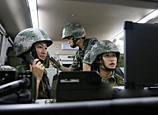
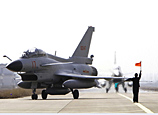
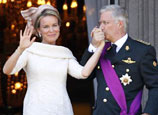
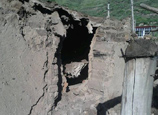





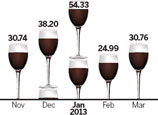






 Solar halo observed in Beijing and Hebei, N China
Solar halo observed in Beijing and Hebei, N China


![]()
